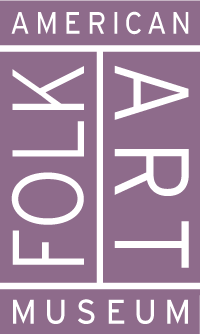I love teaching from self-taught, folk, or “outsider” artists. They offer a glimpse into what it means to come from very different backgrounds relative to artists who go the traditional route. These artists are often excluded from the canon: BIPOC, women, people with disabilities, immigrants, and others who perhaps did not have, or did not want, access to oftentimes violent and always very privileged echelons of traditional artist pipelines.
Ralph Fasanella was an immigrant who grew up in NYC in the early 20th century. He became revolutionized after volunteering to fight in the Spanish Civil war, and when he came back to the US aligned himself with labor, union, anti-war, and civil rights activist groups.
The museum’s American Heritage can be seen as both Fasanella’s interpretation of America in 1974, as well as an aspirational view of what it could be. It is a cacophony of imagery, focusing on the symbolism of the state funeral, typically an event that brings people together, but also shows how state sanctioned pageantry can distract us from important issues. He addresses the politicians in the center, both contributing to and benefitting from the violence surrounding these deaths in the center, but also includes Dr. Martin Luther King’s coffin, as well as other social justice icons along the bottom: Malcolm X, Julius and Ethel Rosenberg, Medgar Evers, the Mississippi 3. On the edifice are names of our historical founders, but also signatures of loved ones and friends– including his son, Marc. “We the People” thus becomes an idea both static and historic, but also dynamic, personal, ever changing, inspiring.
His son tells us that Fasanella thought hard about who to include, and that “the list of everyday Americans he found important… would be far too large to incorporate into any number of canvasses.” I like to ask students: Who would you include in your list of American heroes? A friend? Someone in your community? Yourself? This work of an “outsider” teaches us that anyone can be a hero; we all have potential, and a responsibility, to shape our history, be our own American heroes, and recreate the America we want to see.
Hannah Heller is a museum educator and a Teachers College Art & Art Education Ed.D candidate. Learn more about Hannah here.
